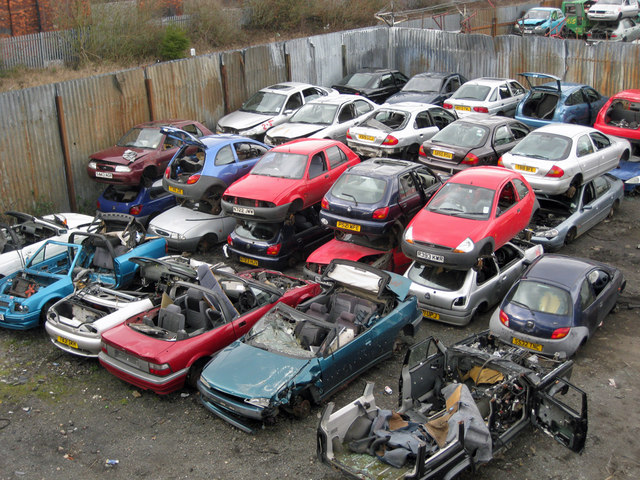

MAR 31, 2022
Overcrowded landfills, increased pollution, and wasting natural resources sound like a scenario from some post-apocalyptic world. And yet this is the reality right now in many places in the world. The main reason? We have just had too much junk to recycle!
RCM Recycling is a scrap metal company and is here to help. We take all your old electronics and junk, recycle them in an environmentally friendly manner and use the proceeds to fund charitable initiatives that create opportunities for children.
Overcrowded Landfills
There are three primary ways that most cities dispose of their refuse. They can bury it in sanitary landfills, burn it in incinerators or send it to recycling facilities to be broken down and repurposed.
When you throw your trash away in the bin, it doesn't disappear into another dimension! If you don't recycle your junk, it will be in landfill sites. Over 90% of household waste ends up in these landfills. These spaces are designed to hold waste temporarily until it can be safely disposed of or re-used. For example, in California, there are only two active landfills left. Once these two large sites reach capacity (it is thought this will happen within 15-20 years), waste will need to be transported out of state – which is expensive and environmentally damaging.
Landfills are not designed to break down waste, only to store it. But if you think that trash sits there forever and ever, think again! When food and other organic material are disposed of in a landfill, it undergoes the process of anaerobic decomposition (breakdown without oxygen). This process results in methane gas production, which is highly flammable and contributes to climate change. Landfills are the third-largest source of human-related methane emissions in the United States!
Increased Pollution
The most obvious consequence of not recycling is increased pollution. Without recycling, waste goes to landfills instead, where it decomposes and releases methane gas. Methane is a greenhouse gas that contributes to global warming. Worse, landfill sites are often built in coastal areas and can leak harmful chemicals into the ocean, killing fish and other wildlife. The oceans are already under threat from climate change, with temperatures rising and coral reefs dying off, so this is a severe problem.
When waste materials are not correctly disposed of or recycled, they can pollute bodies of water. This type of pollution can then lead to problems with our health and the health of other organisms that use that water for drinking and getting food. If water is contaminated, it can be hard to use for drinking, cooking, and bathing.
When materials are not recycled, they usually end up in landfills, which leads to air pollution due to methane gas production as bacteria break down the organic waste in landfills. Methane is a potent greenhouse gas that contributes to global warming since it traps heat in the Earth's atmosphere. The more we can reduce the amount of methane released into our atmosphere by reducing the amount going into landfills through recycling, the better off our planet will be.
Overuse Natural Resources
Recycling also helps to reduce our reliance on natural resources like timber and oil. These resources are finite, which means we will eventually run out. By recycling paper and plastics, we can use less new material and make these resources last longer. Recycling also reduces the amount of timber we need to cut down, helping to preserve our forests (and the animals that live there).
More natural resources are used. If we all recycled, the amount of trash going to landfills would be cut in half, and we wouldn't need new landfills. Recycling also helps conserve energy and water consumption since it takes less energy to create products with recycled materials than with virgin materials.
It's not just stuff we use every day — it's also the environment. We use less oil and gas when we recycle because manufacturers don't have to make virgin materials from scratch. We also save trees by recycling paper instead of cutting down more trees!
We end up paying more for everything at the grocery store. That's because companies have to pay a lot of money to eliminate their waste and process it into usable materials again. If there were no landfill fees or taxes on dumping garbage into our rivers and oceans, they wouldn't be any incentive to recycle!
Recycling your junk is not just a good thing to do – it's an absolute must.
Recycling is good for the environment. It keeps reusable materials out of landfills where they can take up space, but it also reduces the need to mine for new resources that could be damaging to our environment. Just think – every time you recycle a product, you're preventing more waste from going into landfills and making sure that natural resources are conserved as much as possible.
Recycling also helps support our economy. Whether you realize it or not, recycling creates jobs across the entire industry, helps local businesses thrive, and saves people money by reducing prices on recycled goods like paper, plastic, and metal. These days many people see recycling as an investment in their community's future because a healthy environment means healthier citizens and more opportunities.
Recycling is a win-win situation for everyone involved. It benefits the Earth, reduces costs, and supports our local businesses, lowering prices for everyone!
As a single-family homeowner, your junk may end up in a mountain of trash if you do not decide to recycle it. Coupled with other family households, your junk eventually makes its way into a landfill. There are a variety of alternatives to conventional landfills available to make sure that your junk is disposed of environmentally and prevents damage.
Call RCM Recycling for details about how you can dispose of your junk today. We are junk car buyers who recycle all we can.